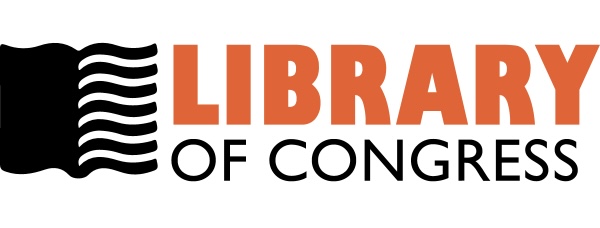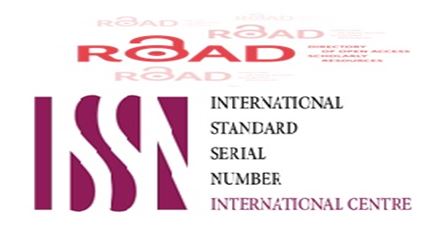تاثير الخصائص الديموغرافية الاجتماعية والتاثيرات الجانبية للدواء على نوعية وجودة الحياة لمرضى سرطان الخلايا الكبدية الذين يخضعون لعلاج سورافينيب في المستشفيات العراقية
DOI:
https://doi.org/10.32007/jfacmedbagdad.6442009الكلمات المفتاحية:
Hepatocellular carcinoma, Multikinase inhibitor, Quality of life, Sociodemographic, Sorafenib.الملخص
الخلفية: سورافينيب هو مثبط متعدد للكيناز عن طريق الفم تم منحه الموافقة من قبل إدارة الغذاء والدواء الأمريكية لعلاج المرضى الذين تم تشخيص إصابتهم بسرطان الخلايا الكبدية وسرطان الخلايا الكلوية المتقدم. ومع ذلك ، قد يوفر قياس جودة الحياة والأعراض التي أبلغ عنها المريض مزيدًا من المعلومات لتقييم ومقارنة فعالية العلاج وملامح السمية أثناء علاج السرطان. على الرغم من الأهمية الحاسمة لنوعية حياة المرضى أثناء تلقي العلاج المضاد للسرطان ، لم يكن لدى المرضى العراقيين الذين يخضعون للأدوية المضادة للسرطان بشكل عام ولا أولئك الذين يتلقون سورافينيب على وجه الخصوص أي بيانات منشورة لتقييم هذا المعيار المهم .
هدف الدراسة: هو تقييم هذا المعيار المهم جودة حياة المرضى العراقيين الذين عولجوا من قبل سورافينيب والذين تم تشخيصهم بسرطان الخلايا الكبدية.
طريقة البحث: تم إجراء دراسة مستقبلية مقطعية مفتوحة التسمية في عيادة الأورام (مستشفى الأورام التعليمي ، مستشفى الأمل ، مدينة الإمامين الكاظمين الطبية في بغداد ، العراق) خلال الفترة من تشرين الثاني 2021 إلى تموز 2022. تم اعتماد طريقة مناسبة لأخذ العينات لتسجيل المرضى في الدراسة الحالية. تم تقييم جودة الحياة باستخدام استبيان QLQ-C30 من المنظمة الأوروبية لأبحاث وعلاج السرطان. أجريت التحليلات الإحصائية باستخدام الحزمة الإحصائية للعلوم الاجتماعية (SPSS ، الإصدار 20.0). لاختبار الاختلافات بين مجموعات الدراسة ، تم استخدام ( (Student’s t-test و (ANOVA). تم استخدام اختبار (Chi-squared) لمقارنة نسبتين للبيانات الفئوية. اعتبرت قيمة P <0.05 ذات دلالة إحصائية.النتائج: تم تسجيل ما مجموعه 52 مريضا في الدراسة الحالية. كان الإرهاق هو الحدث الضار الأكثر شيوعًا حيث ظهر في 90.4٪ من المشاركين ، يليه فقدان الشهية وفقر الدم والغثيان والإسهال (71.2٪ ، 67.3٪ ، 65.4٪ ، 59.6٪ على التوالي) ، بينما أصيب 26.9٪ فقط من المشاركين بالتقيؤ. بالإضافة إلى ذلك ، تم اكتشاف أن بعض المشاركين يتمتعون بنوعية حياة جيدة ، إلا أن البعض الآخر لم يكن كذلك.
الخلاصة: المرضى الذين يعانون من سرطان الخلايا الكبدية في علاج سورافينيب يظهرون نوعية حياتهم المتغيرة. يتأثر هذا الأخير بشكل كبير بالخصائص الاجتماعية والديموغرافية للمرضى والآثار الضارة المرتبطة بالعقاقير.
التنزيلات
المراجع
- Myers, S., Neyroud-Caspar, I., Spahr, L., Gkouvatsos, K., Fournier, E., Giostra, E., Magini, G., Frossard, J.L., Bascaron, M.E., Vernaz, N. and Zampaglione, L. (2021). NAFLD and MAFLD as emerging causes of HCC: A populational study. JHEP Reports, 3(2),100231.
- Bertuccio, P., Turati, F., Carioli, G., Rodriguez, T., La Vecchia, C., Malvezzi, M. and Negri, E. (2017). Global trends and predictions in hepatocellular carcinoma mortality. Journal of hepatology, 67(2), 302-309.
- Fan, S.Y. (2011). Health-Related Quality of Life and Adjustment in Patients with Hepatocellular Carcinoma (Doctoral dissertation, University of Sheffield).
- Farazi, P.A. and DePinho, R.A. (2006). Hepatocellular carcinoma pathogenesis: from genes to environment. Nature Reviews Cancer, 6(9), 674-687.
- Cahill, B.A. and Braccia, D. (2004). Current treatment for hepatocellular carcinoma. Clinical journal of oncology nursing, 8(4), 393-400.
- Waziry, R. (2018). Clinical epidemiology of hepatocellular carcinoma among people with hepatitis B or hepatitis C infection (Doctoral dissertation, UNSW Sydney).
- Llovet, J.M., Ricci, S., Mazzaferro, V., Hilgard, P., Gane, E., Blanc, J.F., De Oliveira, A.C., Santoro, A., Raoul, J.L., Forner, A. and Schwartz, M. (2008). Sorafenib in advanced hepatocellular carcinoma. New England journal of medicine, 359(4), 378-390.
- Daher, S., Massarwa, M., Benson, A.A. and Khoury, T. )2018(. Current and future treatment of hepatocellular carcinoma: an updated comprehensive review. Journal of clinical and translational hepatology, 6(1), 69.
- Abdelgalil, A.A., Alkahtani, H.M. and Al-Jenoobi, F.I. (2019). Sorafenib. Profiles of Drug Substances, Excipients and Related Methodology, 44, 239-266.
- Blanchet, B., Billemont, B., Barete, S., Garrigue, H., Cabanes, L., Coriat, R., Francès, C., Knebelmann, B. and Goldwasser, F. (2010). Toxicity of sorafenib: clinical and molecular aspects. Expert opinion on drug safety, 9(2), 275-287.
- Heydarnejad, M.S., Hassanpour, D.A. and Solati, D.K. (2011). Factors affecting quality of life in cancer patients undergoing chemotherapy. African health sciences, 11(2), 266–270.
- Lopez, J.H., Mayordomo, A.R., Rosado, R.L., Fernandez, C.I.S. and Gallana, S. (2009). Quality of life in long-term oral cancer survivors: a comparison with Spanish general population norms. Journal of oral and maxillofacial surgery, 67(8), 1607-1614.
- Ravasco, P. (2019). Nutrition in cancer patients. Journal of clinical medicine, 8(8), 1211.
- Nagy, J. (2012). Quality of life of head and neck cancer patients after tumor treatment and subsequent maxillofacial rehabilitation (Doctoral dissertation, szte).
- Luckett, T., King, M.T., Butow, P.N., Oguchi, M., Rankin, N., Price, M.A., Hackl, N.A. and Heading, G. (2011). Choosing between the EORTC QLQ-C30 and FACT-G for measuring health-related quality of life in cancer clinical research: issues, evidence and recommendations. Annals of Oncology, 22(10), 2179-2190.
- Efficace, F., Cottone, F., Sommer, K., Kieffer, J., Aaronson, N., Fayers, P., Groenvold, M., Caocci, G., Coco, F.L., Gaidano, G. and Niscola, P. (2019). Validation of the European Organization for Research and Treatment of Cancer Quality of Life Questionnaire Core 30 summary score in patients with hematologic malignancies. Value in Health, 22(11), 1303-1310.
- Giesinger, J. M., Loth, F. L. C., Aaronson, N. K., Arraras, J. I., Caocci, G., Efficace, F., Groenvold, M., van Leeuwen, M., Petersen, M. A., Ramage, J., Tomaszewski, K. A., Young, T., & Holzner, B. (2020). Thresholds for clinical importance were established to improve interpretation of the EORTC QLQ-C30 in clinical practice and research. Journal of Clinical Epidemiology, 118, 1-8.
- Husson, O., de Rooij, B. H., Kieffer, J., Oerlemans, S., Mols, F., Aaronson, N. K., van der Graaf, W. T. A., & van de Poll‐Franse, L. V. (2019). The EORTC QLQ‐C30 Summary Score as Prognostic Factor for Survival of Patients with Cancer in the “Real‐World”: Results from the Population‐Based PROFILES Registry. The Oncologist, 25(4), e722-e732.
- Shomura, M., Kagawa, T., Okabe, H., Shiraishi, K., Hirose, S., Arase, Y., Tsuruya, K., Takahira, S. and Mine, T., 2016. Longitudinal alterations in health-related quality of life and its impact on the clinical course of patients with advanced hepatocellular carcinoma receiving sorafenib treatment. BMC cancer, 16(1), 1-9.
- Brunocilla, P.R., Brunello, F., Carucci, P., Gaia, S., Rolle, E., Cantamessa, A., Castiglione, A., Ciccone, G. and Rizzetto, M. (2013). Sorafenib in hepatocellular carcinoma: prospective study on adverse events, quality of life, and related feasibility under daily conditions. Medical Oncology, 30(1), 1-8.
- Balogh, J., Victor III, D., Asham, E.H., Burroughs, S.G., Boktour, M., Saharia, A., Li, X., Ghobrial, R.M. and Monsour Jr, H.P. (2016). Hepatocellular carcinoma: a review. Journal of hepatocellular carcinoma, 3, 41.
- Yi, S.W., Choi, J.S., Yi, J.J., Lee, Y.H. and Han, K.J. (2018). Risk factors for hepatocellular carcinoma by age, sex, and liver disorder status: a prospective cohort study in Korea. Cancer, 124(13), 2748-2757.
- Zhou, K., Pickering, T.A., Gainey, C.S., Cockburn, M., Stern, M.C., Liu, L., Unger, J.B., El-Khoueiry, A.B. and Terrault, N.A. (2021). Presentation, management, and outcomes across the rural-urban continuum for hepatocellular carcinoma. JNCI cancer spectrum, 5(1), pkaa100.
- Galle, P.R., Finn, R.S., Qin, S., Ikeda, M., Zhu, A.X., Kim, T.Y., Kudo, M., Breder, V., Merle, P., Kaseb, A. and Li, D. (2021). Patient-reported outcomes with atezolizumab plus bevacizumab versus sorafenib in patients with unresectable hepatocellular carcinoma (IMbrave150): an open-label, randomized, phase 3 trial. The Lancet Oncology, 22(7), 991-1001.
- Baldan Ferrari, G., Coelho França Quintanilha, J., Berlofa Visacri, M., Oliveira Vaz, C., Cursino, M.A., Sampaio Amaral, L., Bastos, B., Pereira, T.T., de Oliveira, G., Paulo, J. and de Godoy Torso, N. (2020). Outcomes in hepatocellular carcinoma patients undergoing sorafenib treatment: toxicities, cellular oxidative stress, treatment adherence, and quality of life. Anti-Cancer Drugs, 31(5), 523-527.
- Vogel, A., Qin, S., Kudo, M., Su, Y., Hudgens, S., Yamashita, T., Yoon, J.H., Fartoux, L., Simon, K., López, C. and Sung, M. (2021). Lenvatinib versus sorafenib for first-line treatment of unresectable hepatocellular carcinoma: patient-reported outcomes from a randomized, open-label, non-inferiority, phase 3 trial. The Lancet Gastroenterology & Hepatology, 6(8), 649-658.
- Waldmann, A., Schubert, D. and Katalinic, A. (2013). Normative data of the EORTC QLQ-C30 for the German population: a population-based survey. PloS one, 8(9), e74149.
- Deng, Y., Zhu, J., Liu, Z., Huang, M., Chang, D.W. and Gu, J. (2020). Elevated systemic inflammatory responses, factors associated with physical and mental quality of life, and prognosis of hepatocellular carcinoma. Aging (Albany NY), 12(5), 4357.
- Burg, M.A., Adorno, G., Lopez, E.D., Loerzel, V., Stein, K., Wallace, C. and Sharma, D.K.B. (2015). Current unmet needs of cancer survivors: Analysis of open‐ended responses to the American Cancer Society Study of Cancer Survivors II. Cancer, 121(4), 623-630.
- Zhou, K. and Fountzilas, C. (2019). Outcomes and quality of life of systemic therapy in advanced hepatocellular carcinoma. Cancers, 11(6), 861.
- Brose, M.S., Frenette, C.T., Keefe, S.M. and Stein, S.M. (2014). Management of sorafenib-related adverse events: a clinician’s perspective. Seminars in Oncology, 41, S1-S16.
التنزيلات
منشور
إصدار
القسم
الرخصة
الحقوق الفكرية (c) 2022 Mohammed Abdul- Hassan Jabarah

هذا العمل مرخص بموجب Creative Commons Attribution-NonCommercial 4.0 International License.




















 Creative Commons Attribution 4.0 International license..
Creative Commons Attribution 4.0 International license..


